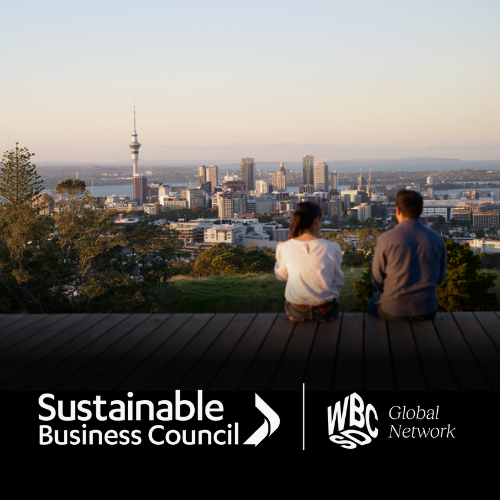Tackling Traffic – big opportunities for business in climate change solutions
Traffic snarl-ups already strike one in four main roads in Auckland during peak commuter periods. By 2020, Auckland Transport predicts onein three main roads will be congested if current trends in population and vehicle use continue.
The cost to our businesses, lifestyle and the environment is significant.
A major independent report identifies some pathways for New Zealand to achieve the carbon reduction targets set in the Paris Agreement in 2015. These pathways also offer solutions to Auckland’s traffic woes and bring big opportunities to business.
The Vivid Economics Report called ‘Net Zero in New Zealand’ was commissioned by 35 New Zealand MPs. It explores several scenarios that would help New Zealand achieve the target of net zero emissions during the second half of this century.
It makes it clear that New Zealand needs to do much more than just beef up its Emissions Trading Scheme.
Scenarios to lower emissions
In one scenario, 85 per cent of New Zealand’s passenger vehicle fleet would be decarbonised, with 3.5 million electric cars and light commercial vehicles on our roads by 2050. As the technology becomes better and cheaper, up to 25 per cent of the heavy vehicle transport fleet would also go electric.
Another scenario looks at the possibility of shifting freight from road to rail, and electrifying national rail networks.
All of the scenarios call for the transition to a fully renewable energy sector, identified as cost-effective and relatively easy to do, because many of our electricity sources are already low carbon.
I’m excited about these options, because the co-benefits would be significant.
Aucklanders would see more efficient public transport and freight options, which would in-turn reduce traffic and make savings in time and fuel. They would also see health benefits, as cars go electric and the streets become cleaner and quieter. New Zealand’s susceptibility to volatile international fossil fuel prices would diminish and our energy security would grow.
Technology innovation opportunities
However, none of this can be achieved without the development of low-emissions technology. And that’s another aspect of this report that excites me – it starts to identify the opportunities for small,medium and large businesses to develop and innovate low-emission, hi-tech solutions. The report suggests government and research institutions partner with small, medium and large companies to find solutions.
We really need business to start exploring the potential.It’s been said that climate change could be the greatest driver of innovationsince World War II. We could miss out if we don’t start planning for theopportunities, as well as risks.
In New Zealand there are already great examples of business leaders making real investments in climate change solutions.
Christopher Luxon at Air New Zealand and Mike Bennetts at Z Energy both regularly speak about their business strategies that have climate change at the core. Z Energy has invested $26 million in the country’s first commercial-scale bio diesel plant and is rolling out more electric vehicle chargers.
Fraser Whineray at Mercury and Alistair Davis at Toyota publicly encourage their customers to use low emissions and electric vehicles.
There are a number of actions I’d suggest businesses take if they want to help ease rush-hour traffic and save time and money.
- If practical, offer staff more flexible working hours or the opportunity to work remotely – less time stuck in traffic means more time at work and at home. BNZ offers its staff flexible hours when it can, because it drives a more agile and productive workforce and enables a better work-life balance.
- You could also review your delivery or freight schedule and see if the business can consolidate deliveries. It’ll lower your emissions and save fuel and delivery costs. OfficeMax have a Freight Carbon Emissions Calculator, which they are keen to use with their customers for more efficient delivery options. Companies like Cityhop also provide electric cars that your staff can rent using a car-sharing app. The scheme would encourage staff to bike or take public transport and reduce traffic at peak times.
The Vivid Report also represents a step change in New Zealand politics. It was commissioned by MPs from across the political spectrum, which indicates a willingness to work together on climate change,beyond the electoral cycle. Businesses need policy stability and predictability to respond to the challenge of climate change and innovate and invest. I think this report starts the conversation that will help us get there.
Contact: Renee Graham, Communications Manager
Phone: +64274559104
Email:

